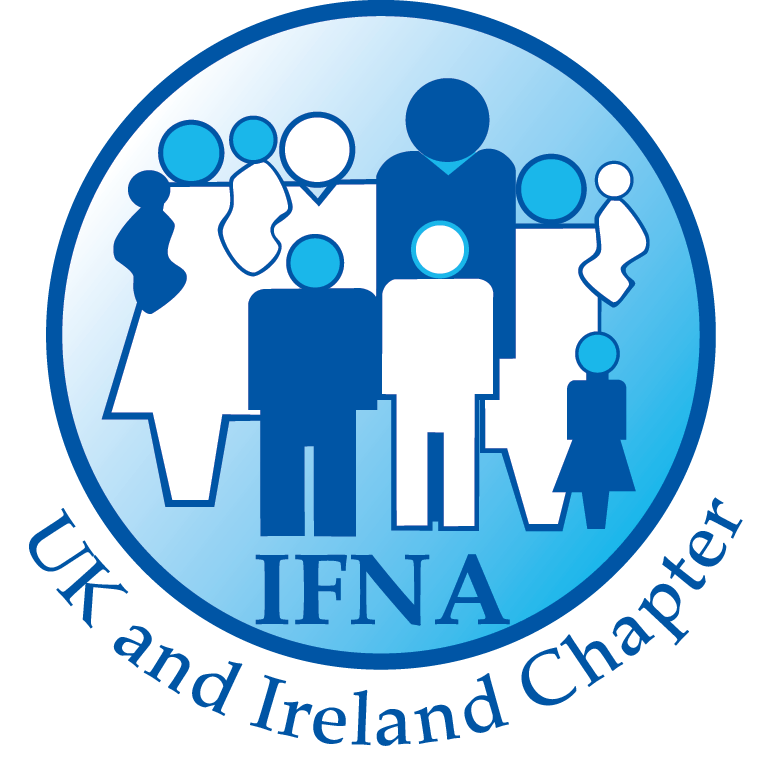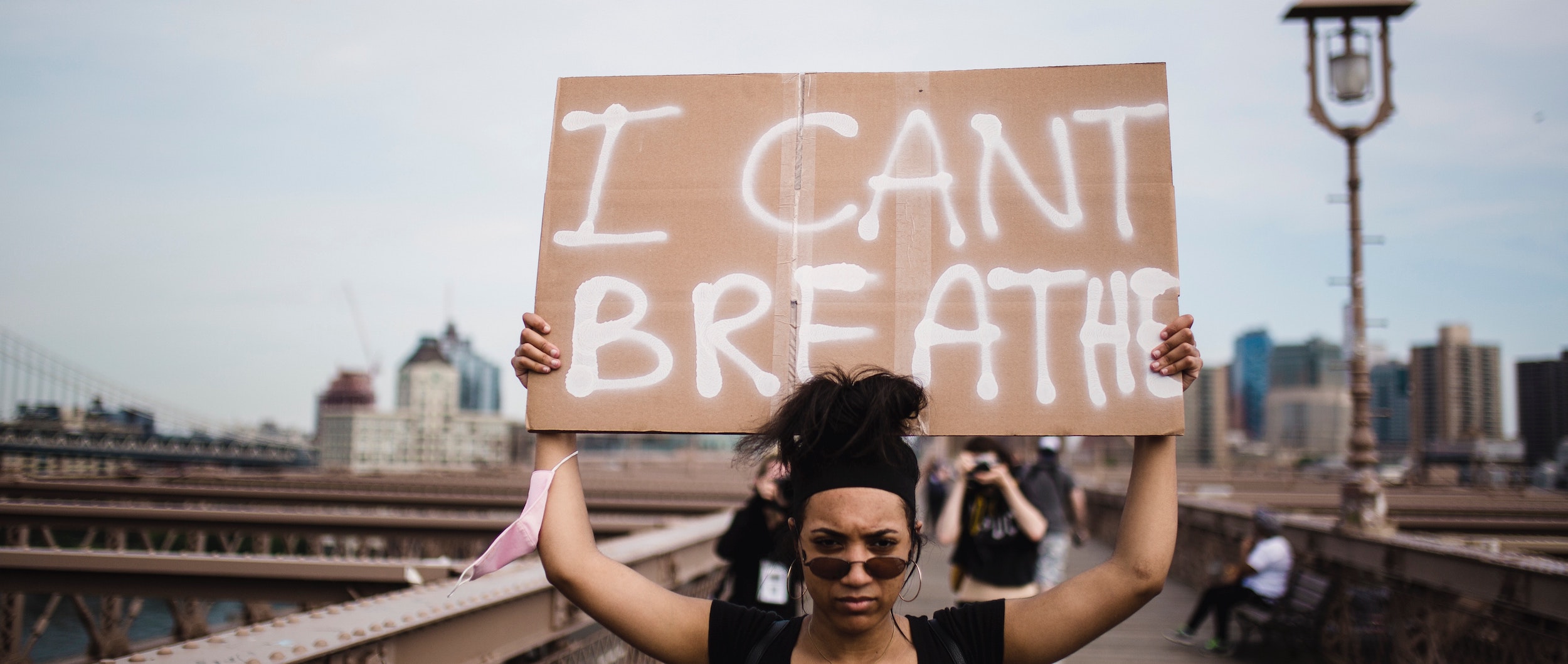IFNA President, Professor Sonja J. Meiers PhD RN PHN
The International Family Nursing Association (IFNA) embraces a compassionate family focus on health, social justice, human dignity, and respect for all. The vision of IFNA is to transform health for families worldwide. The senseless and tragic instance of 46-year old African American Mr. George Floyd’s death at the hands of police in Minneapolis, Minnesota (USA), while he pleaded “I can’t breathe” and called for his mother, is one of the most horrible scenes of my personal life. This incident happened despite the cries of bystanders calling for four police officers to release pressure on Mr. Floyd. This incident is also one of numerous situations of brutality against our indigenous persons and persons of colour over time. I am angry, sad, disillusioned, grieved, and anxious about what has happened for Mr. Floyd and his family. Yet, as a family nurse, I am not immobilised. I have the power for making change.
Citizens in 22 states across the United States are demonstrating angst and outrage. These protests are also happening across the globe in Australia, Canada, China, Denmark, France, Germany, Italy, New Zealand, Syria, Ethiopia, the UK, and beyond. Marchers are peacefully protesting structural racism, law enforcement officer brutality, and persistent health inequities and stain of racism in response to Mr. Floyd’s killing and other perpetual traumas. This is not an isolated incident and it is representative of other situations worldwide where indigenous persons and persons of colour are victimised. Protests have, at times, turned violent with destruction and theft at essential neighbourhood grocery stores and pharmacies; burning of businesses, sacred memorials, and homes; and inappropriate graffiti messages in public places. Yet, as a family nurse, I am not immobilised. I have the power for making change.
We are also confronting the illness and death rates of COVID-19 due to health disparities among our citizens of colour across the globe. For instance, persons who are African Americans represent 6.6% of Minnesota’s population but over 22% of cases and 20% of COVID-19 deaths (Malcom, 2020). Family nurses are consistently battling to address the outcomes of these worldwide inequities. The collision of the COVID-19 pandemic and the awareness of our endemic racism seems almost too much to bear. Yet, as a family nurse, I am not immobilised. I have the power for making change.
Amidst the uncertainty and suffering in the face of injustices for families and family nurses due to Mr. Floyd’s killing, the subsequent protests and violence, and the heightened awareness of COVID-19 health disparities, what does it mean to “embrace a compassionate family focus on health, social justice, human dignity and respect for all”? I propose the following family nursing actions to transform health for families worldwide:
- Focus on loving each other with a compassionate family focus, connect with each other, be kind to each another.
- Encourage parents to discuss the meaning and essential nature of equality with their children.
- Shed light on what it means to honour human dignity in nursing actions with all families.
- Encourage all families to listen to each other so that emotions are revealed and heal the broken-hearted.
- Plan to illuminate health disparities in each and every presentation with undergraduate and postgraduate students going forward – it is a matter of family health.
- Highlight social injustice every time you see it, name it, claim it, and confront it – it is a matter of family health.
- Advocate for reform policies that decrease health disparities, structural racism, and law enforcement brutality in every country.
- Support peaceful activism to decrease disparities and increase equity.
- Expect respect.
Finally, I wish health for you. You are a healing instrument in each interaction with families. Take time to reflect, pray, or meditate to strengthen yourself and energise for tomorrow – It is a matter of our global family’s health.
Additional resources related to racism and family health:
- American Academy of Nursing (June 1, 2020). American Academy of Nursing Statement: Racism Affects Health and Wellness and It Must Be Addressed. https://www.aannet.org/news/press-releases/position-statement-on-racism
- American Heart Association (June 5, 2020). American Heart Association Statement on Health Disparities and Racial Violence: https://youtu.be/Lyc_oTOeEOY
- Canadian Nurses Association (June 11, 2020). Anti-Black racism is a public health emergency in Canada: https://cna-aiic.ca/en/news-room/news-releases/2020/anti-black-racism-is-a-public-health-emergency-in-canada
- Dichter, S. (2020, June 12). Privilege is. https://sashadichter.com/2020/06/12/privilege-is/
- Hardeman, R. R., Medina, E. M., & Boyd, R. W. (June 10, 2020) Perspective: Stolen breaths. New England Journal of Medicine.
- National Council on Family Relations (June 4, 2020). A Response to the Death of George Floyd and a Call to Action from the NCFR Board of Directors. https://www.ncfr.org/news/response-death-george-floyd-and-call-action-ncfr-board-directors
- Parris, D., St. John, V., & Bartlett, J. D. (2020). Resources to support children’s emotional well-being amid Anti-Black racism, racial violence, and trauma. Child Trends. https://www.childtrends.org/publications/resources-to-support-childrens-emotional-well-being-amid-anti-black-racism-racial-violence-and-trauma
- Systemic racism and health disparities: A Statement from Editors of Family Medicine Journals. (2020). American Family Physician. https://www.aafp.org/journals/afp/content/Racism_statement.html
- Wezerek, G. (August 11, 2020). Opinion: Racism’s hidden toll. In America, how you long you live depends on the color of your skin. The New York Times. https://www.nytimes.com/interactive/2020/08/11/opinion/us-coronavirus-black-mortality.html
- Wright, L. M. (2020, June 6). Maxine Alexander: My first black friend; Racism and health problems. http://www.lorrainewright.com/2020/06/06/racism-and-health-problems/

